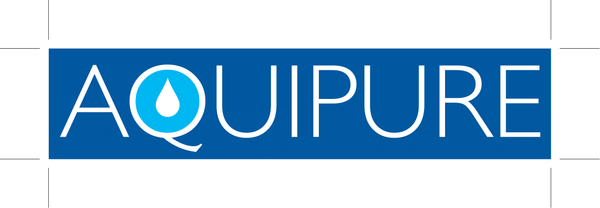Frequently asked questions
How often should I replace the Aquipure filter?
We recommend replacing your Aquipure filter every 9-12 months to ensure optimal performance and water quality.
While this is a general guideline, there is no exact timeframe for every user. The lifespan of your filter can vary depending on the quality of your feed water (e.g., municipal tap water vs. well water) and how much water you use daily. All flow capacity specifications provided are based on laboratory testing with standard water quality, and real-world performance may vary.
Here are a few signs that it might be time to replace your filter:
Taste: If you notice a significant change in the taste of your water, it’s likely time for a replacement.
Water Flow: Aquipure filters use high-precision carbon filtration (down to 0.5 microns). If water flow slows down noticeably, it may indicate the filter is clogged due to particulates or VOCs in your water supply.
As with any filtration system, performance naturally declines over time. Regular replacement helps maintain water purity and keeps your system working as intended.
At Aquipure, we're committed to providing honest guidance—our recommendations are based on real-world use, not inflated marketing claims. Clean, reliable water is our priority.
What is the working temperature of Aquipure water filters?
Our water-filtration systems are best designed to work from 4 - 38℃.
What is the working pressure of the filters?
The working pressure of all our water filter systems is minimum 20psi, and max 116psi.
What is the filtration accuracy of the filters?
Aquipure filters use advanced carbon block technology with a filtration accuracy of 0.5 microns. This means the filter can effectively remove particles as small as 0.5 microns in size—that’s 20 times smaller than the width of a human hair!
To put it in perspective, this level of precision allows the filter to reduce:
Chlorine, sediment, rust, and other fine particles
Volatile Organic Compounds (VOCs)
Certain bacteria and cysts (such as Giardia and Cryptosporidium)
This high level of filtration helps improve the taste, smell, and safety of your water—providing clean, crisp water for you and your family. It's a key reason Aquipure filters stand out from standard filters, which often only filter down to 5 microns or more.
What is Total Dissolved Solids (TDS)?
The total dissolve solids will not change with a under sink filter, you will need a reverse osmosis system instead. TDS includes minerals the filter will not remove like calcium, magnesium, sodium etc.
TDS stands for (Total Dissolved Solids) which refers to the total concentration of dissolved inorganic salts, organic compounds, and other substances in water. These include minerals like calcium, magnesium, sodium, potassium, chloride, sulphates, and carbonates, as well as trace amounts of metals and organic matter. TDS is typically measured in milligrams per liter (mg/L) or parts per million (ppm
Why Ordinary Water Filters Cannot Reduce TDS:
1. Filtration Mechanism - Ordinary filters (e.g., activated carbon filters, ceramic filters, or basic sediment filters) primarily target larger particles, chlorine, odors and some organic pollutants. They rely on physical adsorption or mechanical sieving, which cannot remove dissolved ions or molecules (like salts or metals) that contribute to TDS.
2. Pore Size Limitations - The pores in these filters are too large (e.g., 0.1–10 microns) to block dissolved ions (which are 0.0001–0.001 microns in size). Dissolved solids pass freely through these filters.
Why Reverse Osmosis (RO) Filters Reduce TDS:
1. RO Membrane Technology - RO filters use a semi-permeable membrane with extremely tiny pores (about 0.0001 microns). Under high pressure, water is forced through the membrane, while dissolved ions, molecules, and contaminants (like salts, heavy metals, and organic compounds) are blocked and flushed away as wastewater.
2. Effective Ion Removal. The RO membrane’s dense structure and electrostatic repulsion properties reject up to 95–99% of dissolved solids, including sodium, lead, arsenic, nitrates, and fluoride. This drastically lowers TDS.
3. Multi-Stage Filtration - RO systems often combine pre-filters (to remove sediment and chlorine) and post-filters (e.g., activated carbon) to enhance purity, ensuring comprehensive TDS reduction.
Key Difference are ordinary filters address the physical/chemical impurities but not dissolved ions. RO filters, physically block dissolved solids at the molecular level, making them the gold standard for reducing TDS.
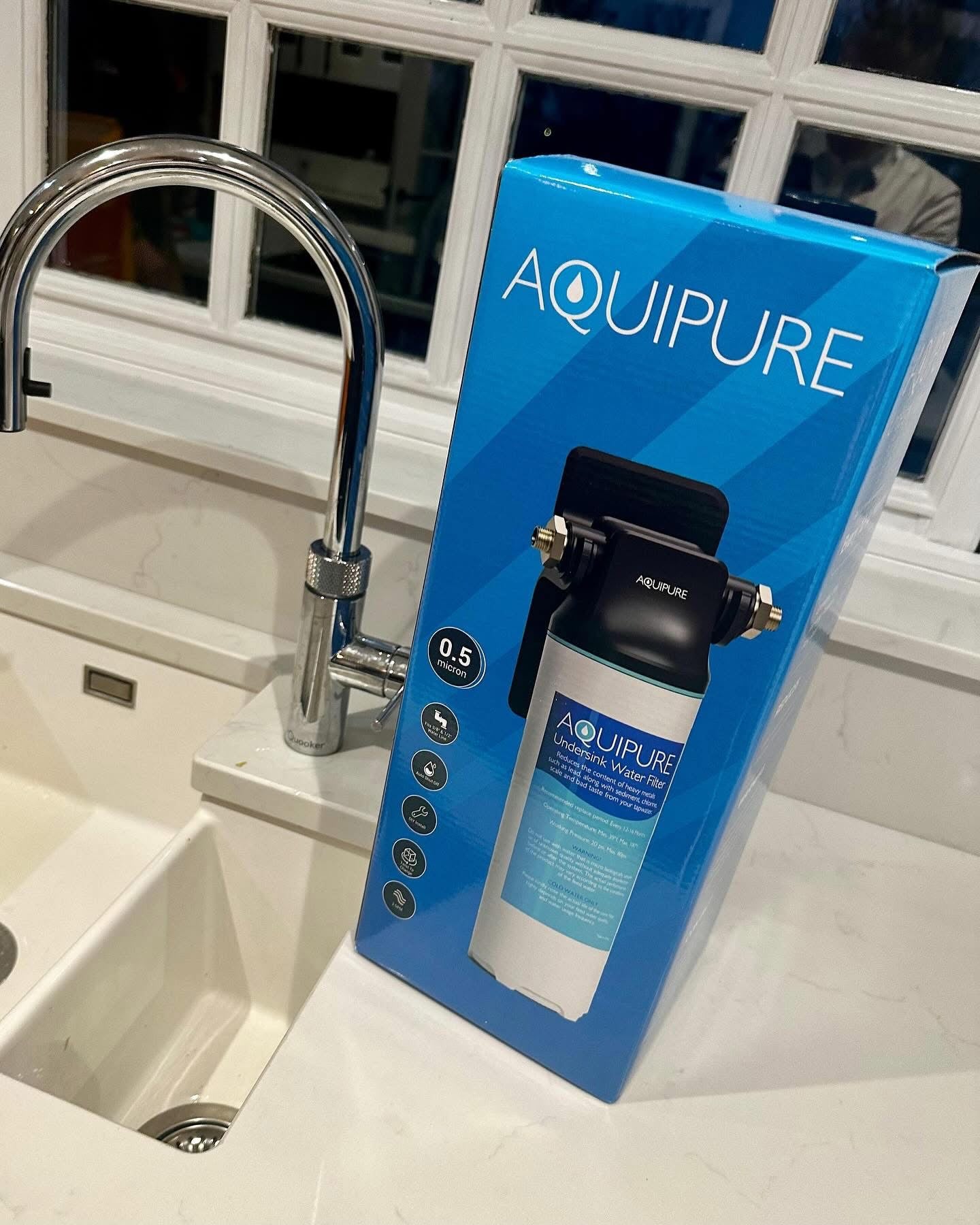
Filter specifications
This document provides a detailed breakdown of the filter’s technical specifications, including flow rate, filtration accuracy (0.5 micron), capacity, materials used, and certifications. It’s a helpful reference for understanding exactly how your Aquipure filter performs and what it’s designed to remove.
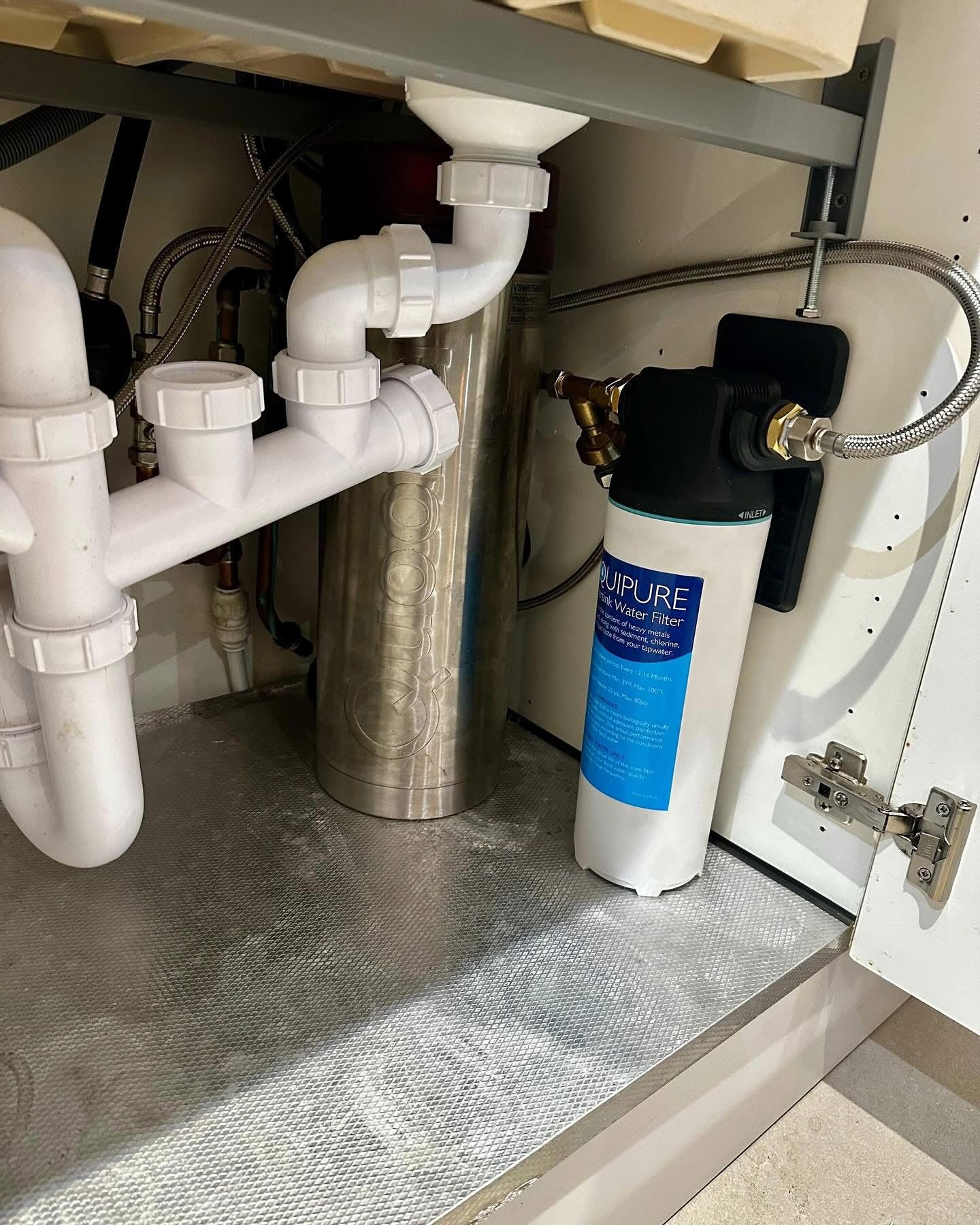
Fluoride Test Report
This test report shows the results of independent lab testing on how effectively the Aquipure filter reduces fluoride levels in water. It demonstrates the filter's capability to target and reduce fluoride—a concern for many households seeking cleaner, safer drinking water.
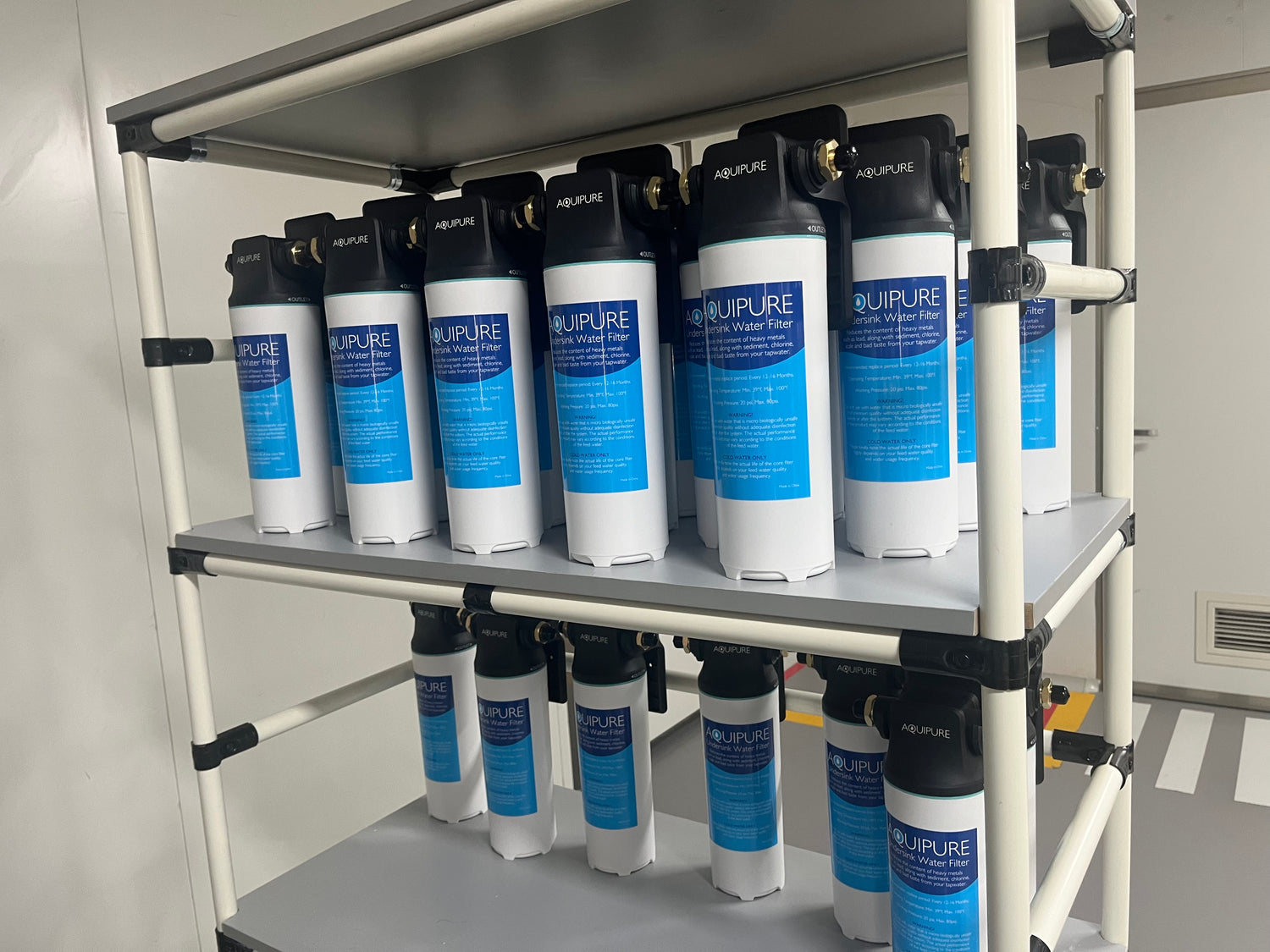
Anti-scale report
This report outlines the filter’s ability to reduce scale buildup, which is caused by hard water minerals like calcium and magnesium. The results show how the filter helps protect your appliances and plumbing from scale damage, extending their lifespan and improving water quality.
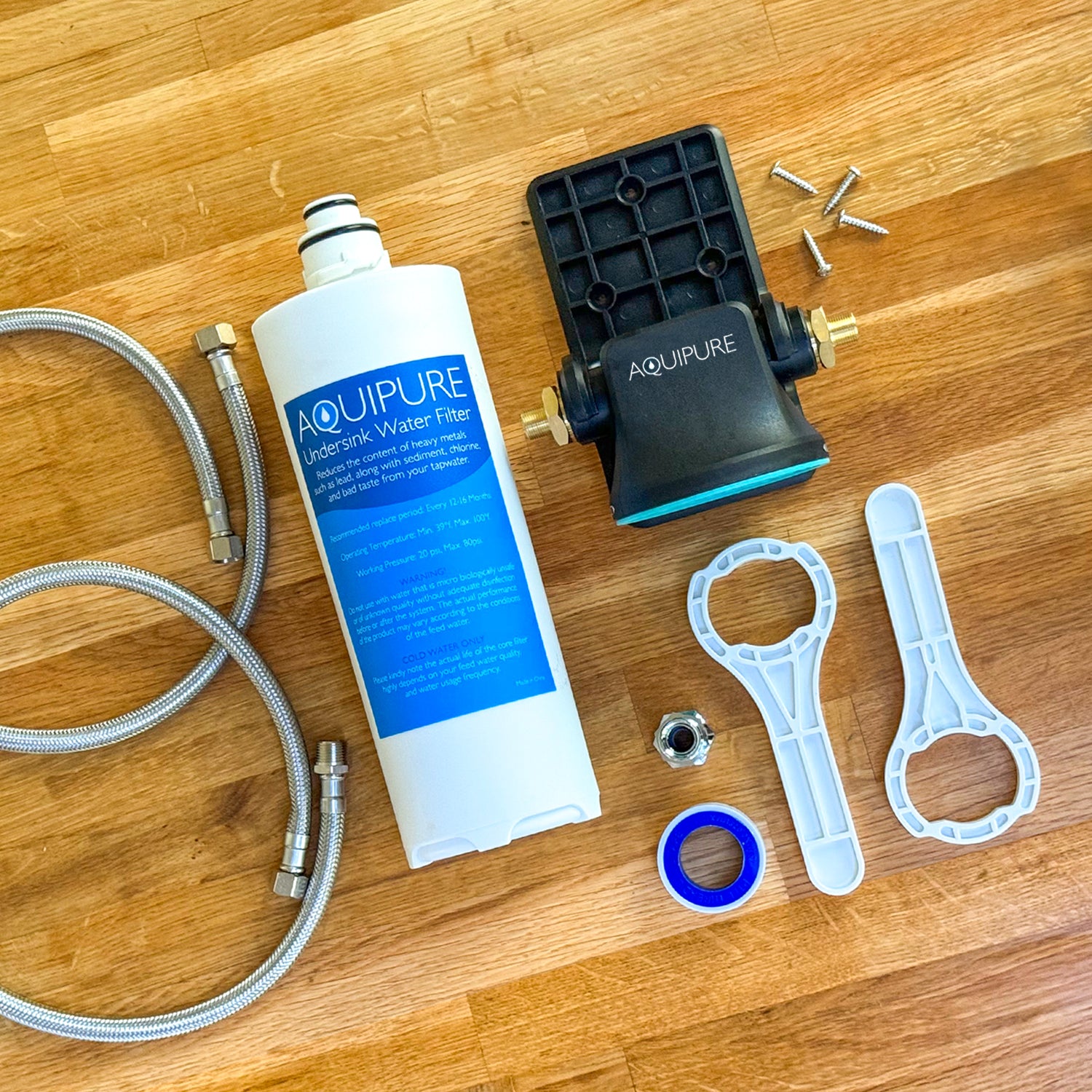
Microplastics
Aquipure filters are designed to target and reduce microplastics—tiny plastic particles less than 5mm in size that are increasingly found in tap water. Our filters target particles down to 0.5 microns (0.0005mm) far below the 5mm threshold.
Additionally, our filters are tested to meet NSF/ANSI Standard 42 during the manufacturing process by the IAMPO Research & Testing Inc, which covers a range of important performance and safety criteria. One key part of this certification is Material Safety—which ensures that the materials used in the filter do not introduce harmful contaminants into your water during the filtration process. In other words, while the filter is removing unwanted substances, it won’t add anything unsafe in return.
This certification gives you added peace of mind that your Aquipure filter not only improves water quality, but also meets high standards for safety and reliability.

SW10 Removal rate
- Chlorine - 99.5%
- Lead - 99%
- Anti-Scale - 99.20%
- Turbidity - 60%
- Fluoride - 50%
- Arsenic - 50%
- Brass - 50%
